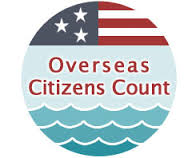Net Operating Loss Deduction in the News
A net operating loss occurs when the allowable business tax deductions for any given tax year exceeds gross income for that year, thus generating a negative taxable income. Beginning with the Revenue Act of 1918, tax law has allowed for the carryover of such losses, making them a valuable tax planning tool for reducing taxable income in any year where a profit is generated. The federal carryback and carryforward periods, which have fluctuated over the years, are currently set at two and 20 years, respectively. Many states also permit the carryover of a net operating loss although the allowable the time periods and rules governing the deduction vary considerably from state to state. At the present time, the majority of states allow the corporate net operating loss deduction to be carried forward for some period of time while a much smaller number allow it to be carried back.
Although the net operating loss deduction is most commonly used on corporate tax returns, losses from various pass-through entities such a partnerships, limited liability companies and s-corporations can be used to cancel out income on personal returns. Such was apparently the case with the personal tax returns of Donald Trump which is why the carryover of a net operating loss has made the news headlines in recent weeks. Although Trump’s tax returns have not officially been released, the portions of his 1995 state income tax returns for New York, New Jersey and Connecticut that were recently uncovered by the New York Times showed him claiming a negative income of over $916,000 million for that year. Although it has not been confirmed, speculation is that this negative income represented a net operating loss from businesses that were set up as pass though entities. If this is the case, those losses have been available to cancel out income from these various businesses and thus reduce the taxes owed by Mr. Trump over much of the time that has transpired between 1995 and the present.
Regardless of the specifics of Donald Trump’s tax returns, it is certain that the carryover of a net operating loss can be a valuable tax saving tool for businesses of any size, maturity level or business structure. Using this deduction, companies with fluctuating income can take full advantage of deductions that would be otherwise be lost in years where expenses exceed income. In fact, the carryover of a net operating loss is one of the only means by which the taxes owed by a business in any given tax year can be reduced by anything other than tax credits or tax deductions earned in that specific year. Although certain items such as personal exemptions and non-business deductions including contributions to charities, deductible IRA contributions and medical deductions cannot be used to calculate a net operating loss, it is nevertheless a valuable tax saving and tax settlement tool available to businesses across the board.
If you have tax questions or a tax debt you are unable to pay, our experienced tax settlement professionals are happy to discuss your tax resolution options free of charge. For more information about our services, visit us today at www.professionaltaxresolution.com or call us at 877.889.6527. Our CPAs, Enrolled Agents and other skilled accountants have a thorough understanding of tax law together with the experience necessary to know which tax settlement option will be the best fit for your specific set of circumstances.




